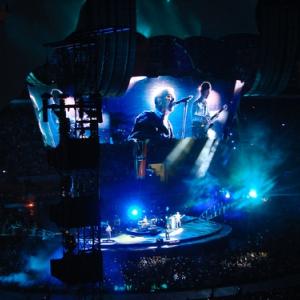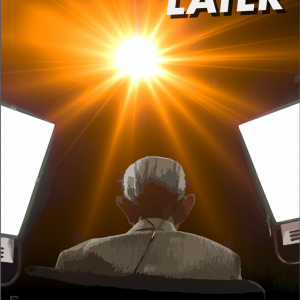Katie Anderson is a summer Web Assistant for Sojourners.
Posts By This Author
'Duck Dynasty' Star Phil Robertson Shares Story of 'Rediscovering God'
Hollywood producers often break every rule when it comes to publicizing faith and politics. But A&E’s smash hit reality show, Duck Dynasty, puts it front and center.
Protest Songs, Revisited: New Campaign from ONE Features Mumford & Sons, U2, and More
The ONE Campaign, co-founded by music legend Bono of U2, has launched a new platform to promote global messages of social justice, women’s rights, and putting an end to apartheid, war and poverty — just to name a few.
The campaign, agit8, features new covers of famous protest songs throughout history by contemporary musicians ranging from Mumford & Sons to Greenday.
With the stated goal of ending poverty by 2030, agit8 is timed to coincide with the upcoming G8 summit next week. Noting the impact protest music has had on American history, agit8 encourages artists to “get on their soapbox” and amplify “the voices of those who spoke up for social change throughout history.”
'Apocalypse Later:' Documentary Explores Harold Camping's End-Times Predictions
For thousands of years, select groups of Christians have thought their generation was Earth’s last. Even the Apostle Paul thought Jesus would return in his lifetime. But Paul didn’t have the audacity to pinpoint an exact date for what we call the Rapture. Harold Camping, on the other hand, did.
Apocalypse Later: Harold Camping vs. The End of the World a new documentary that premiered June 8 — exposes wrongful and conflicting beliefs about Jesus’ return by sharing Camping’s concrete opinions of those who didn’t follow his beliefs of the apocalypse. Declaring their spot in hell, Camping was certain that those who didn’t follow his apocalyptic views would spend eternity in damnation.
Apocalypse Later tells the story of Camping, a man who had to let go of his pride and face the reality of joining the dozens of others who have wrongly predicted the end of time.
In the documentary, historian and New Testament scholar Loren Stuckenbruck refers to the apocalypse as a “literary genre,” a “mode of thought,” and “a social movement.”
The film is emotional and shocking, contrasting the scary, more literal interpretations of fundamentalist Christians with the more nuanced hermeneutical approaches of academics like Struckenbruck. The juxtaposition reveals that the tensions and battles that Christians face might not be against those who will be “left behind,” but rather between Christians themselves.


